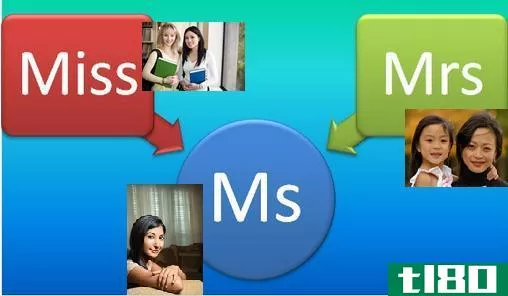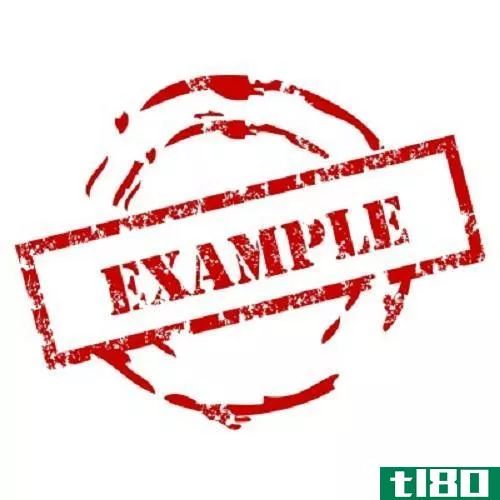称呼语的定义和例子
在谈话、信件、电子邮件或其他形式的交流开始时,称呼是礼貌的问候、善意的表达或其他认可的标志。也叫问候。


正如约阿希姆·格泽加(Joachim Grzega)在《哈尔,哈伊尔,你好,你好:英语史上的问候语》一文中所指出的,“问候语是谈话的重要组成部分——它们告诉对方‘我对你很友好’,它们可能是一段较长对话的开始”(《英语史上的言语行为》,2008)。
词源来自拉丁语“health”
实例和意见
"There's more to the story," Alex announced. "Trust me." Katie hadn't heard him come up, and she stood. "Oh, hey," she said, blushing against her will. "How are you?" Alex asked. "Good." She nodded, feeling a bit flustered." (Nicholas Sparks, Safe Haven. Hachette Book Group, 2010) J.D.: Greetings and salutations. You a Heather? Veronica Sawyer: No, I'm a Veronica. (Christian Slater and Winona Ryder in Heathers, 1988) Cowboy: Howdy. Adam Kesher: Howdy to you. Cowboy: Beautiful evening. Adam Kesher: Yeah. (Monty Montgomery and Justin Theroux in Mulholland Dr., 2001) How Are You (Ya)? "I bumped into an acquaintance. 'Hi Sally,' I said. 'How are you?' She paused and then stopped and said hello and how was I and how were the children and it was manifestly obvious she couldn't remember my name." (Philip Hesketh, How to Persuade and Influence People. Wiley, 2010) "The phone rang. 'O'Neil speaking.' "'Howdy, Pat. It's Mac.' "'Mac, how are ya? I was just thinkin' about ya. Great to hear from ya.'" (Jay Feldman, Suitcase Sefton and the American Dream. Triumph Books, 2006) "Listen to how [people] say, 'How are you?' They don't really say, 'How are you?' They say, 'How are ya?' . . . 'How are ya?' means 'Just say "good," and walk away. I don't really want to know. Register that I asked, then proceed not to tell me.'" (Paul Reiser, Couplehood, 1995) How Ya Doin'? "Everyone seems friendly at first, everyone stops and asks, 'Hi, how ya doin'?' But after a while you realize that that's it, nothing ever follows up that 'Hi, how ya doin'?' And to answer that with anything less exuberant than, 'Pretty good,' is a social outrage. The creed is to be bright, brisk and busy." (Upamanyu Chatterjee, English, August: An Indian Story. Faber and Faber, 1988) "When you meet somebody at a post office, he or she says, 'How are you, how are you doing?' At Laguna, people will stand there and they'll tell you how they are doing. At Laguna, it's a way of interacting." (Leslie Marmon Silko, Yellow Woman. Simon and Schuster, 1997) Hey! "Hey . . . is basically a synonym for hi--a friendly greeting. Until fairly recently, it was confined to the American South. The Dictionary of American Regional English (DARE) cites a 1944 survey as reporting that hey is 'the common term of familiar salutation of children and young people in most of the South; hello seems to them either semiformal or archaic. On many northern and western campuses the term is hi.' . . . "But not anymore. . . . My sense is that among people under about 40 from all regions, hey for some time has been at least as popular as hi, and probably more so, and now seems completely unremarkable." (Ben Yagoda, "‘Hey’ Now." The Chronicle of Higher Education, January 6, 2016) Brief Encounters "When persons 'accidentally' encounter one another, it appears, they may be at liberty to confine their remarks to an exchange of greetings (Goffman 1953:485 points out that length of salutation may depend 'on the period that had elapsed since the last salutation and the period that seemed likely before the next'; but a minimal exchange is possible); when there is a 'planned' or 'intended' encounter, more than a minimal pair is done." (Gene H. Lerner, Conversation Analysis: Studies From the First Generation. John Benjamins, 2004) Register and Dialect "Salutations in business letters (Dear Ms. Portillo, Dear Sirs) differ from those in personal letters (Hey Ashley, Dear Devon). Every text--every piece of natural language--represents characteristics of both its situation and its speaker or writer; every text is simultaneously register and dialect." (Edward Finegan, "American English and Its Distinctiveness." Language in the USA: Themes for the Twenty-First Century, ed. by Edward Finegan and John R. Rickford. Cambridge University Press, 2004) Email Greetings "E-mail has changed the rules of engagement. The language of business is evolving. Our old 'dears' are withering away, replaced in the top perch by 'hello,' 'hi' and 'hey.' . . . "'I'm fed up with people writing "Hi Jean" when they've never met me,' says etiquette guru Jean Broke-Smith. "'If you're sending a business e-mail you should begin "Dear . . ."--like a letter. You are presenting yourself. Politeness and etiquette are essential.' . . . "But why are so many of us culling 'Dear . . .' from our e-mails, even in the workplace? The simplest answer for its detractors is that it no longer says what it means, it feels cold and distant." (James Morgan, "Should E-mails Open With Dear, Hi, or Hey?" BBC News Magazine, Jan. 21, 2011) The Lighter Side of Salutations "What ho!" I said. "What ho!" said Motty. "What ho! What ho!" "What ho! What ho! What ho!" After that it seemed rather difficult to go on with the conversation. (P.G. Wodehouse, My Man Jeeves, 1919)- 发表于 2021-10-21 12:46
- 阅读 ( 291 )
- 分类:语言
你可能感兴趣的文章
夸张法(hyperbole)和习语(idiom)的区别
...是一组既有字面意义又有比喻意义的词。这就是夸张和习语的主要区别。一个非母语的人可能会因为习语产生的比喻意义而被混淆,但他可以理解夸张。这就是夸张与习语的主要区别。本文试图详细地强调这两个词之间的区别。...
- 发布于 2020-10-29 00:43
- 阅读 ( 492 )
错过(miss)和女士(ms)的区别
...保留其婚前姓的头衔”。老**也可以用“小姐”这个头衔称呼。这是因为老**是未婚女子。你不能用小姐称呼已婚妇女。看看下面的例子。 这是史密斯太太的大女儿阿拉贝拉小姐。 在这个例子中,我们了解到,阿拉贝拉,史密斯...
- 发布于 2020-11-02 10:02
- 阅读 ( 257 )
习语(idiom)和表达(expression)的区别
...之处。 习语是一些词组,它们的定义有时与用来构成习语的词不同。简言之,你不能“字面上”理解成语。一个很好的例子是“踢水桶”。对其他人来说,它只是指踢水桶的行为;对其他人来说,这意味着死亡或死亡。成语也...
- 发布于 2021-06-23 18:34
- 阅读 ( 505 )
例子(example)和样品(sample)的区别
...代的“例子”一词是三次演变的结果。它最早起源于拉丁语的examplum,后来演变成古法语的example和essample,最后演变成中古英语的example,原意是totake out,这个词从14世纪就开始使用了。 同时,“sample”作为一个词是从“example”...
- 发布于 2021-06-24 07:10
- 阅读 ( 746 )
夫人(madam)和夫人(madame)的区别
...别夫人(main difference madam) vs. 夫人(madame) 夫人和夫人都是称呼妇女的礼貌用语。虽然“夫人”和“夫人”之间的差异似乎只是由一个字母造成的,但这种差异导致了这两个词之间的许多其他差异。夫人被宣布为/ˈ疯狂的ə鉴于夫...
- 发布于 2021-06-27 12:26
- 阅读 ( 335 )
夸张法(hyperbole)和习语(idiom)的区别
...必须有一个既定的意义才能被视为习语。这就是夸张和习语的主要区别。 什么是成语(an idiom)? 习语是一种固定的表达方式,具有不同于字面意义的比喻意义。这个比喻的意义与它的词的个别意义根本没有关系。这是因为这个短...
- 发布于 2021-06-27 16:43
- 阅读 ( 481 )
委婉语(euphemism)和双重语言(doublespeak)的区别
...言都是间接表达事物的相关现象。双重语言可以采取委婉语的形式,但委婉语并不是双重语言的唯一形式。此外,它还可以使用不同的形式,如夸张的语言和过多的行话。 覆盖的关键领域 1.什么是委婉语-定义、特征、例子2。什...
- 发布于 2021-07-02 05:30
- 阅读 ( 450 )
阿姨(aunty)和阿姨(auntie)的区别
...常接近的基因联系。 连接 阿姨被认为是阿姨的非正式称呼。 阿姨被认为是阿姨的非正式称呼。 用法 主要用于英式英语 主要用于美式英语 起源 在18世纪早期 20世纪70年代 什么是阿姨(aunty)? 阿姨这个词有两种不同的定义...
- 发布于 2021-07-08 13:00
- 阅读 ( 1804 )
礼貌(manners)和礼仪(etiquette)的区别
...用哪把勺子做晚餐时的什么被认为是礼仪。它还包括如何称呼某人,因此称呼已婚人士女士而不是女士,反之亦然被认为是不懂礼节。在某些地方,如印度,礼仪和礼仪往往是一致的,如不闲逛被认为是一种方式以及礼仪。然而...
- 发布于 2021-07-12 11:57
- 阅读 ( 387 )
小孩(kid)和小孩(child)的区别
...,直到他们长大**。这个词也可以用在消极的方面,用来称呼那些行为不成熟的成年人。 “孩子”的例子: 你有几个孩子? 我的孩子明天就满2岁了。 你开玩笑吧(当用作笑话时) 你有时候真是个孩子(当用于否定意义时) 根...
- 发布于 2021-07-13 00:27
- 阅读 ( 222 )















